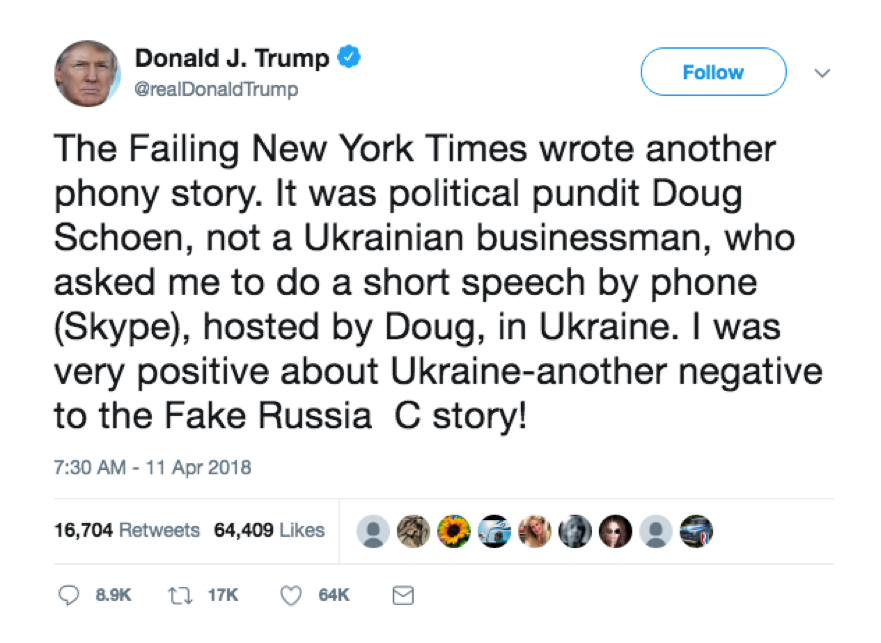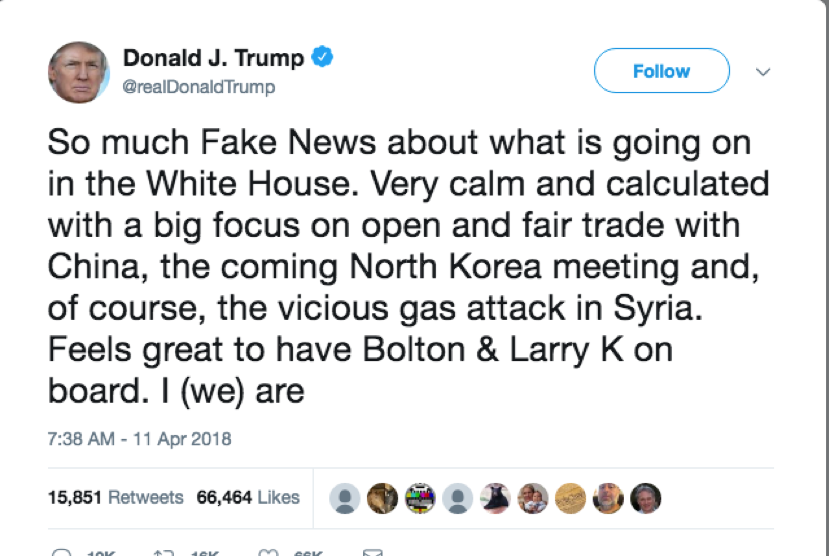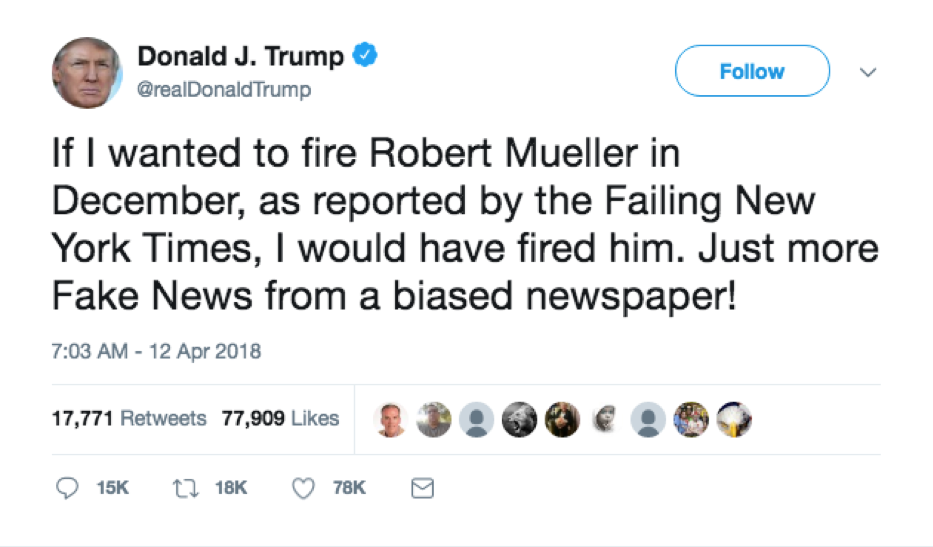US - #WeeklyAddress: April 9-15: Reporter punched in the face while covering a story
Below are the most notable incidents regarding threats to press freedom in the US during the week of April 9-15:
Reporter gets punched in face while covering a story
ABC7 Eyewitness News reporter Tim Fleischer was punched in the face by a man identified as Efram Lacroix, in Queens, New York, on April 10. The attack occurred while Fleischer was interviewing a local outside of a press event for New York Mayor Bill de Blasio. The attacker was arrested a few blocks away from the location of the attack and charged with assault and harassment, though no motive for the attack has yet been established. Fleischer was taken to a nearby hospital and was treated for a minor injury. Last month, a similar incident occurred when reporter Bree Steffen and photographer Michael Dean Gold were harassed during a live segment in San Diego. Physical, verbal and online attacks and abuses against journalists in the US have increased under President Trump’s administration. According to the US Press Freedom Tracker, 39 were physically attacked in 2017.
Potential FCC investigation into Sinclair’s controversial ads
On April 12, twelve US senators asked the Federal Communications Commission (FCC) to investigate Sinclair Broadcasting Group, one of the country’s largest broadcasting companies, for “deliberately distorting news.” Sinclair has been under severe criticism for its recent anti “fake news” campaign, thanks to a viral video on March 31 showing dozens of news anchors from company-owned local TV stations reciting an identical speech criticizing “biased” reporting in national media. The Senators, which included 11 Democrats and independent Bernie Sanders, also asked the FCC to halt its ongoing review of Sinclair’s merger with Tribune Media Company after the requested investigation. In May 2017, the broadcasting company introduced a plan to obtain Tribune’s 42 television stations in 33 markets, which would significantly increase Sinclair’s viewership. The senators even asked the FCC to consider revoking Sinclair’s license; however, that same day, the FCC announced that it would not pursue an investigation, citing the First Amendment. FCC Chairman Ajit Pai said, “I have repeatedly made clear that the FCC does not have the authority to revoke a license of a broadcast station based on the content of a particular newscast.” In October 2017, President Trump suggested via tweet that media licenses should be challenged if they report on “Fake News.”
Trump tweets criticize New York Times coverage of Mueller investigation
On April 11 and 12, President Donald Trump issued a series of tweets critical of The New York Times’ coverage of Special Prosecutor Robert Mueller’s Russia investigation. Trump attempted to discredit the news outlet and claimed the Times “wrote another phony story,” referring to an article that was published on April 9. He followed his tweet with another shortly afterward with his oft-used phrase “Fake News.”

The following day Trump continued his rampage against The New York Times. He called the news outlet “a biased newspaper” because of its reporting on his relationship with special counsel Robert Mueller, who is investigating Russian meddling in the 2016 presidential elections. The article Trump was referring to reported that he had attempted to fire Mueller in December 2017.

The United States ranks 43rd out of 180 countries in RSF's 2017 World Press Freedom Index after falling 2 places in the last year.
For the latest updates, follow RSF on twitter @RSF_en.



